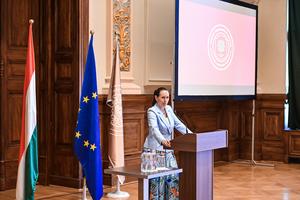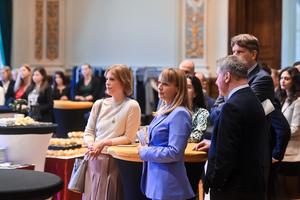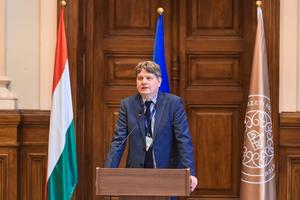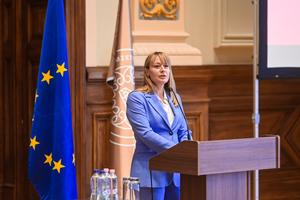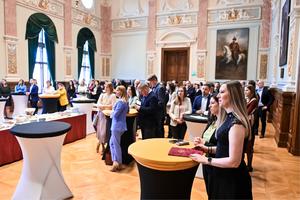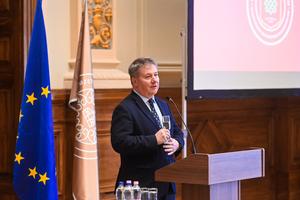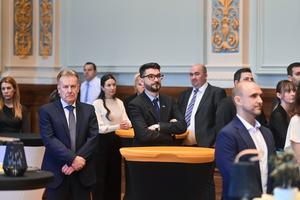Between July 1 and December 31, 2024, Hungary held the Presidency of the Council of the European Union for the second time. During the Presidency period, the Ludovika University of Public Service (LUPS) worked in close cooperation with the Ministry for European Union Affairs. The University was responsible for preparing the seconded expert diplomats and selected and trained over 100 students to serve as “Presidency Liaison Officers,” supporting the organization of events in Budapest. In addition, LUPS contributed to the success of the Presidency through the publication of scientific volumes (72 studies totaling more than 1,300 pages) and by organizing several events. The University also hosted the Mobile EXPO, a travelling exhibition that tours Europe between successive EU presidencies.
Réka Varga, Dean of the Faculty of Public Governance and International Studies, formally expressed her gratitude to all those who contributed to the successful implementation of the Presidency tasks within the University. She highlighted the importance of cooperation with the Ministry and the strategic coordination involved in implementing the LUPS EU Presidency Strategy. This strategy fostered collaboration not only within the Faculty but across the entire University, significantly strengthening institutional cooperation. A total of 97 administrative, academic, and research staff members were involved in the strategy’s execution, thereby supporting Hungary’s effective fulfillment of its Presidency responsibilities.
At the event, Balázs Molnár, Deputy State Secretary for European Affairs, also delivered remarks, outlining the Presidency’s key priorities and the negotiations successfully concluded under Hungary’s leadership. He emphasized that Hungary had effectively represented European values and achieved breakthroughs in several important areas.
Boglárka Bólya, Ministerial Commissioner responsible for personnel training and civil society relations during the Presidency, underlined that nearly 700 Presidency staff members received training through the cooperation of the Ministry and LUPS, and that numerous joint events were held within the University.
The event concluded with a toast by Gergely Prőhle, Programme Director of the John Lukacs Institute, who praised the dedication and professionalism of the University’s staff. He noted that the system of rotating EU presidencies clearly reflects the role and standing of each member state within the Union, and affirmed that Hungary deserves its place at the negotiating table. In his closing words, he emphasized that the successful delivery of the Presidency period also enhanced the University’s reputation.
